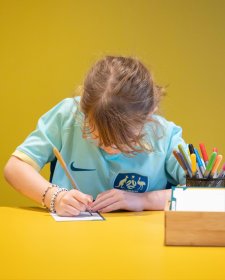David - My father was a world champion. Dad's uncle was a world champion, but on my mum's side, mum's uncle and mum's brother was a world champion. So, as a kid growing up, watching my dad win world championships and hoping and dreaming that maybe one day that you could win a world title like your dad. Well in 1979 my dream came true, but it was much bigger and better than whatever a kid could ever imagine. I won my first world title with my dad, at Sydney's Show, which is the Wimbledon of wood-chopping, which was an unbelievable thing but I finished up winning that world title 21 years straight. 11 years with dad, and then 10 years with my brother Peter. So yeah, I'd classify myself as one of the luckiest guys in the world probably.
Jacqui - We've got the concept that came about with David, together when we were photographing him in the first shoot under the beautiful big tree, and he took us to a place where his family, they had won a few world championships. And he's standing under the tree and when he said, "If the tree could talk, imagine what it would say to us." And I said, "Why?" And he said, "Because it's witnessed all of the years of the family, and the legacy of championships." And I said, "Wow, what the tree saw." And that became the title, so he gave me a high-five and he said, "I'm an artist!" And enjoyed that moment of coming up with a little bit of poetry, I suppose you'd call it.
David - We've got the underhand, where you cut between your legs. The standing block where we cut up and stand. The single double hander, cross cut, sorry, and then you have tree-fellings. They said that if you can win the underhand and the standing block world title in Sydney, you can call yourself the best. But if you can win the two of them in the one year, it's called the double, which is one of the hardest things in the world to do. There's only been seven people that's ever won it and I've done it six times. The only person in the world who's ever done it six times. And I just know just how much work and effort has gone into that. I might let me dog in.
- [Camerawoman] Go for it!
David - Cause she's a whinger. She'll stop whingin' as soon as she comes in. I'm sorry, okay, well sorry Miss Mufford. Sorry Jordan. This is your house, sorry Jordan. Sorry about that, we've cut to now me dog come in her name is Jordan, and she's never been outside in her life and she whinges. If you wanna come back as an animal come back as a foster pet.
Jacqui - The idea is to create a photograph that looks like a painting, is maybe a mix of a painting and a photograph. So, I like the idea of hand-colored photography. The inspiration has come from the works of John Dempsey. I see the frame really as a theatre and that person is there, posed, in a particular way. Often with a prop, or some sort of costume. And you see with Dempsey's portraits, up close, he uses lots of little brush strokes. So I would be doing this a little bit differently than hand-tinting, which is rubbing in. There's not really a lot of detail, as much as this. But I'm a sucker for punishment. I think it's nice because you are working with a photo at the base of the image, which is very perfect, so my job will probably be, whether I like it or not, to create less perfection, which is the hand, that's what I like.
David -Well when you have a hundred axes, and they're all sitting in a cupboard, what we decided to do was actually name them. I bought two axes a while back, and I had all these names, Bill and Ben, and the next one was the Flowerpot Men, and then there's Brutus and there's Hotdog and there's, because I had a hotdog one day. So we do name all the axes, only because you know exactly that. Okay, I'm gonna grab Hotdog, because I know that that axe is gonna cut that. And there's one called Henry, my father-in-law was called Henry, and that axe I've won world titles with, so I'll grab that for a particular event. So, every axe has got a name.
Jacqui - I find it interesting myself where I have a miniature sort of portrait of a very well-rounded, robust sort of Australian athlete like David. He has a lovely presence. Here also the expression on his face is really beautiful. It's very strong, and it's also very gentle, and it's questioning like he's bringing something to it. This is a chance for an artist to interpret his story. And through this project too, because I've travelled to his place, where he lives, and spent time with him, so I get to know him and learn about him. And we've sort of, there's a collaborative nature of this, really. So I'm becoming familiar with my subject. And then the result is there for people to, they'll see the work but there's a story behind it as well. And I also think that I couldn't get David to give me this expression if I didn't spend time with him, and if we didn't get along, I think we get along. It helps to get along.
David - Yeah, it's amazing when ya sit back and think about it. 186 world championships, 175 Australian titles, the only person in sporting history who'd ever won 1,000 championships and its about 1,800 and something now. My sport has taken me for over 40 years, and I'm an OAM, and one of me mates said to me that was the OAM stood for Over-sized Australian Male, so I've got one of those titles. Made Tasmanian of the year. I enjoy life, I wake up every morning with a smile on my face, and there's 24 hours in a day, you can only do what you can in that day. And hopefully that rubs off on people, I'm a bit of a clown, I love taking the mickey out of myself, everybody else. Wood chopping is not one of those high-profile bunny sports, but I taught people that I classify myself as a millionaire. I might not have it in money, but there's no way you can put a value on winning a world championship, winning a world championship with your dad, and the last world title that I won with my dad it was a five and a half months after his heart bypass, and he hugged me and he kissed me, and he told me that he loved me. Well, money can't buy that. How fortunate at the end of the day, mate.













